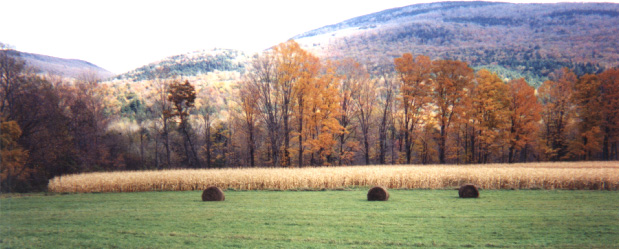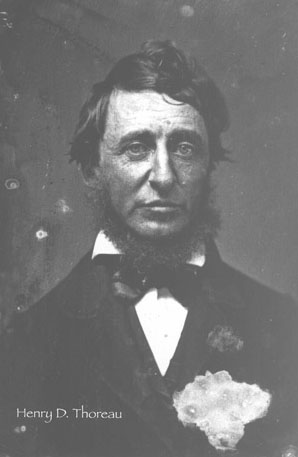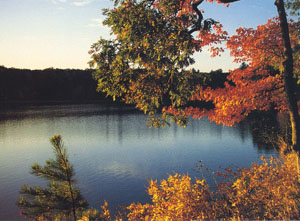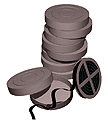New England's Renaissance thinker, because he bridged literature and science with a moral imagination.

Focus | Morals | Simplicity | Ownership | Source of ethical imagination | Index | Assignment
§§§
|
Thoreau wrote:
"Before
the land rose out of the oceans and became dry land, chaos reigned; and between
high and low water mark… a sort of chaos still reigns.”
Henry David Thoreau, Cape Cod, p 64. Quoted in J Siry, Marshes
of the Ocean Shore, page. 58.
In
this zone, creatures of the land mingle with those of the sea, creating a
strong abundance of mixing vegetation and animal kingdoms.
(Siry page. 58). |
 |
| |
| |
Thoreau, in the 1856. |
Morality
"Why has every man a conscience then? I think that we should be men first, and subjects afterward. It is not desirable to cultivate a respect for the law, so much as for the right. The only obligation which I have a right to assume is to do at any time what I think right."
"The State never intentionally confronts a man’s sense, intellectual or moral, but only his body, his senses. It is not armed with superior wit or honesty, but with superior physical strength. I was not born to be forced. I will breathe after my own fashion. Let us see who is the strongest."
"I saw to what extent the people among whom I lived could be trusted as good neighbors and friends; that their friendship was for summer weather only; that they did not greatly propose to do right; that they were a distinct race from me by their prejudices and superstitions."
"The lawyer’s truth is not Truth, but consistency or a consistent expediency…. He well deserves to be called ... the Defender of the Constitution.... Still thinking of the sanction which the Constitution gives to slavery, he says, “Because it was part of the original compact, – let it stand.” [He] is unable to take a fact out of its merely political relations...."
Civil Disobedience,1849.
Ten years after the description of his imprisonment was published as Civil Disobedience Thoreau wrote a defense of John Brown's raid on a Federal arsenal in Harper's Ferry, Virginia.
Plea for John Brown

Walden Pond; Concord, Massachusetts.
"I went to the woods because I wished to live deliberately, to front only the essential facts of life, and see if I could not learn what it had to teach, and not, when I came to die, to discover that I had not lived. I did not wish to live what was not life, living is so dear; nor did I wish to practice resignation, unless it was quite necessary. I wanted to live deep and suck out all the marrow of life, to live so sturdily and Spartan-like as to put to rout all that was not life, to cut a broad swath and shave close, to drive life into a corner, and reduce it to its lowest terms, and, if it proved to be mean, why then to get the whole and genuine meanness of it, and publish its meanness to the world; or if it were sublime, to know it by experience, and to be able to give a true account of it."
Excerpt from the start of Walden
At present in this vicinity the best part of the land is not private property; the landscape is not owned. But possibly the day will come when ... fences shall be multiplied and man-traps and other engines invented to confine men to the public road, and walking over the surface of God's earth shall be construed to mean trespassing on some gentleman's grounds.
Source Ð "Essay on Walking," in Excursons (1862), p. 264.
To compare to Emerson.

Does Thoreau's virtue derive from his description of our duty?

Thoreau's Living Ethics: Walden and the Pursuit of Virtue.
By Philip Cafaro.
¤ ¤ ¤

An index to Thoreau's writings on this site.
From Walden
Journals
A home
Crust of Bread
Faith in a Seed
Wall's book on Thoreau
On the web
American Transcendentalism Web
–
http://www.vcu.edu/engweb/transcendentalism/authors/thoreau/
Meaning of Transcendentalism
–
http://www.transcendentalists.com/1thorea.html
Library of Congress –
http://lcweb2.loc.gov/ammem/today/jul12.html
University of California Santa Barbara Library –
http://www.library.ucsb.edu/thoreau/index.html
Susan Sontag, Regarding the Pain of Others, (2003).
George Lakoff, The Political Mind, (2008).
 Photographic source is National Portrait Gallery, a daguerreotype: Wikimedia Commons, Photographic source is National Portrait Gallery, a daguerreotype: Wikimedia Commons,
"Henry Thoreau visited the Daguerrean Palace of Benjamin D. Maxham at 16 Huntington Street and had three daguerreotypes taken for fifty cents each."
Focus | Morals | Simplicity | Ownership | Source of ethical imagination | index | Assignment

Assignment
A day's assignment, Date completed ___________________
Name __________________________________.
What selection of Thoreau's
writings did you read? http://thoreau.eserver.org/default.html
Title
________________________________________________________________
Brief description:
----------------------------------------------------------------------------------------------------------
Did you detect anything resembling this narrative structure:
1.
Preconditions –what we need to know
2.
The buildup –events leading up to
3.
The main event –what the narrative is
about
4.
The purpose –what is achieved or what it
means
5.
The wind-down –events that end the
process:
6.
The result –the final context of the
events (embedding)
7.
The later consequences –lasting impressions,
moral.
See if you can match the content of what you read to this
structure:
Parts of a
narrative: Thoreau's
subject or focus
Preconditions –deep background.
The buildup –events leading up to.
The main event –what the story
is about.
The purpose –what is achieved or what it means.
The wind-down –events that end the process.
The result –the final context of the
events (embedding).
The later consequences–lasting impressions of
the narrative.

Assignment
Focus | Morals | Simplicity | Ownership | Source of ethical imagination | index
Narrative structure
 Narratives in film Narratives in film

| 




